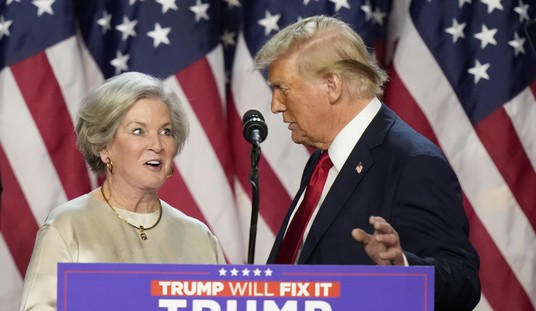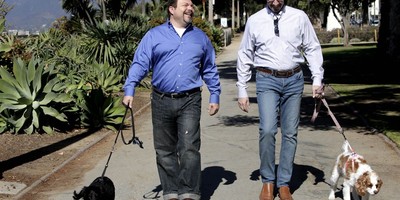Congressman Ron Paul has just delivered his valedictory address in the House of Representatives. And he has told TV interviewers that the American Revolution was a wonderful example of secession. He's a much better OB/GYN, I'm sure, than he is a student of America's history. He could be cited for political malpractice.
If the Founding Fathers and the Patriots who fought and won the Revolution were seceding, why is it that none of them ever called it secession? They certainly had the word back then. They invoked the well-known right of revolution. They had read their John Locke and their Montesquieu, to be sure, but they most often listened to sermons advocating independence--especially those of the New England clergy.
Then, again, why is it that the Confederates of 1861 did not claim that their Secession movement was an exercise of the right of revolution? They were careful not to call it revolution. That's because if they as slaveholders had a right of revolution--to secure what they regarded as their unalienable rights--then so did their slaves.
No one was more eloquent on this point than Thomas Jefferson. Although a slaveholder throughout his life, and never able to disentangle himself from that peculiar institution, Jefferson wrote at length about the injustice of slavery. "The God who gave us life gave us liberty at the same time." Speaking of slavery, Jefferson said "we have the wolf by the ears."
Movingly, he said "I tremble for my country when I reflect that God is just and His justice cannot sleep forever." He went on to say that in a revolution by the slaves to secure their undeniable rights to life, liberty and the pursuit of happiness, God would be on the side of the slaves.
Recommended
Congressman Paul is wrong to suggest that our American War of Independence was an act of secession from the British Empire. Those Whiskey Rebels ion the Pennsylvania frontier in 1794 were certainly unhappy with taxes on their only cash crop, corn. They rebelled against the Excise Taxes imposed by the new Washington administration. President Washington himself led troops into the field to put down that rebellion by force. It was an overwhelming show of force, too.
President Andrew Jackson was himself a slaveholder, but when in 1832 South Carolina tried to nullify federal laws within their state's borders, Jackson called it treason. And he rattled his saber. Ex-President James Madison backed him up to the hilt. Madison compared the leader of the "Nullies"--John C. Calhoun--to the serpent in the garden. Tough stuff.
When Virginia's governor told Jackson he could not march troops through the Old Dominion, Old Hickory roared back. He would march at the head of the army, he said, and if any man tried to bar his way, "I will hang him as high as Haman!"
Virginia backed down. South Carolina backed down. And John C. Calhoun, it is recorded, became even paler.
What Ron Paul is talking about is dangerous. Those of us who are dissatisfied with the election results--and there are millions of us--have no recourse but to ballots. There must be no recourse from ballots to bullets, said Jefferson. Said Lincoln.
If Ron Paul wants to advocate revolution or civil war, he should say so openly. If he wants to invoke the right of revolution, he should tell his followers to count the cost. We suffered 630,000 dead in the Civil War. Is he willing to lose that many again? Or, with our population increase, ten times that many?
Other politicians, those in Lincoln's time, pooh-poohed the idea of much bloodshed from secession. One fire-eating secesh leader said he would wipe up with his handkerchief all the blood that might be shed over secession.
Such careless men were not hanged, mercifully. But they deserve the awful censure of history.

























Join the conversation as a VIP Member